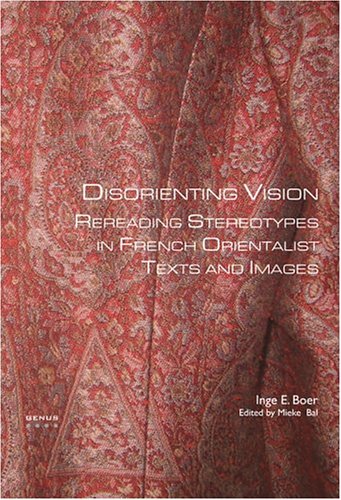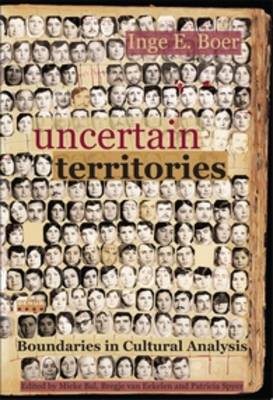GENUS: Gender in Modern Culture
2 primary works
Book 5
This book begins with a painting. Loyalty to cultural artefacts, listening carefully to what they have to say, is the secret of Inge E. Boer’s approach to the French Orientalists tradition. In a post-Said manner, Boer provides close readings of philosophical and literary texts, paintings, prints and other artefacts. Her readings establish a dialogue with critical post-colonial and feminist theory as well as (art-) historical and literary scholarship. She treats all these artefacts like subjects in their own right, enabling them to show and tell. This dialogic attention to detail makes for an innovative vision that shuns the sweeping statements of a priori conviction, as much as avoiding the unwitting endorsements that the rhetoric of scholarship sometimes promotes.
Book 7
Tracing and theorizing the concept of the boundaries through literary works, visual objects and cultural phenomena, this book argues against the reification of boundaries as fixed and empty non-spaces that simply divide the world. Expanding on her previous work on gender and Orientalism, Inge Boer takes us into uncertain territories of fashion and art, tourism and travel, skilfully engaging the ambivalence of boundaries, as both protecting and confining, as bringing distinction while existing by virtue of their ability to be transgressed. In her close readings of that boundaries as desert, as frame, as home (or lack of it), Boer shows that boundaries are spaces within, through, and in the name of which negotiations take place. They are not lines but spaces ; neither fixed nor empty but flexible and inhabited.
With the publication of this book, Boer’s intellectual legacy stretches beyond her untimely passing. The writings that she left behind can be said to have inaugurated the future of her work, presented in the latter part by several of Boer’s intellectual companions. In their original essays, the contributors elaborate on Boer’s theme of boundaries as spaces where opposition yields to negotiation. Committed to the artefact as cultural stimulant, as the embodiment of thought, their analyses span a multitude of artefacts and media, ranging from literature to photography, to art installation and presentation, to film and song. Fanning out from Boer ‘s central focus – Orientalism – to other places of contestation, boundaries are shown to mediate the relationship between self and other ; they are, ultimately, spaces of encounter.
With the publication of this book, Boer’s intellectual legacy stretches beyond her untimely passing. The writings that she left behind can be said to have inaugurated the future of her work, presented in the latter part by several of Boer’s intellectual companions. In their original essays, the contributors elaborate on Boer’s theme of boundaries as spaces where opposition yields to negotiation. Committed to the artefact as cultural stimulant, as the embodiment of thought, their analyses span a multitude of artefacts and media, ranging from literature to photography, to art installation and presentation, to film and song. Fanning out from Boer ‘s central focus – Orientalism – to other places of contestation, boundaries are shown to mediate the relationship between self and other ; they are, ultimately, spaces of encounter.

